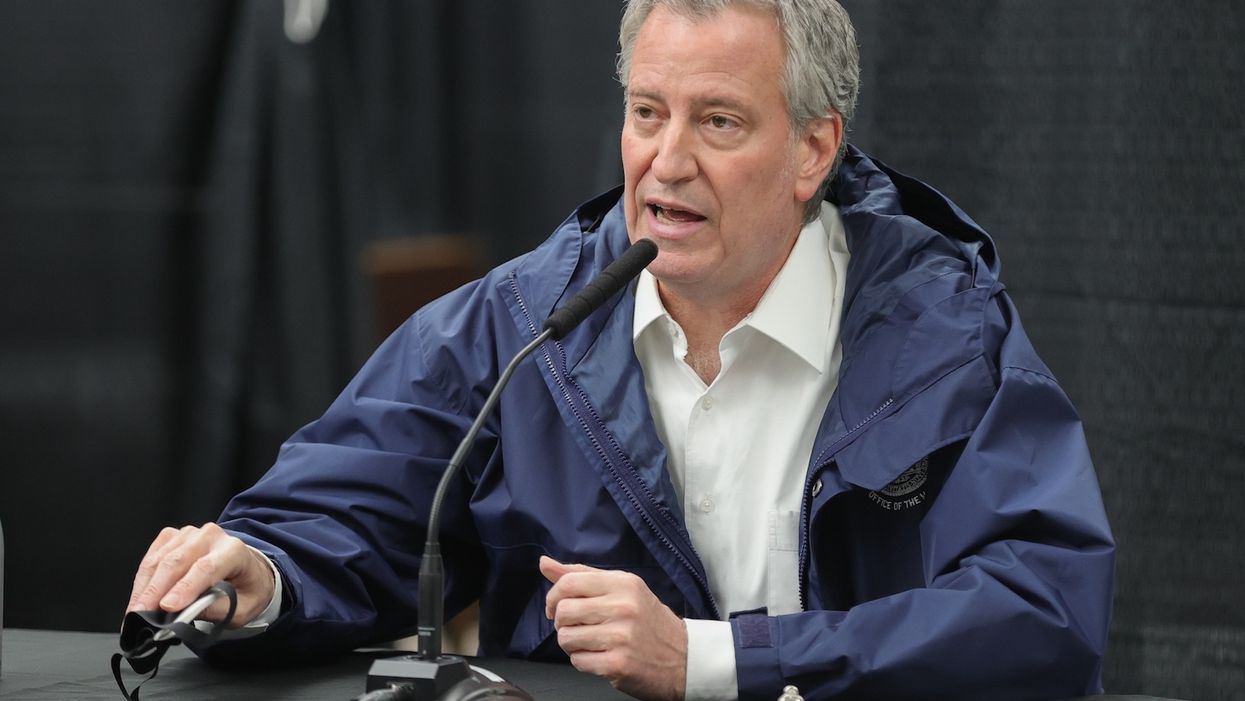
New York City Mayor Bill de Blasio. (EuropaNewswire/Gado/Getty Images)

Muddying the waters
The number of people who had died in New York City from COVID-19 increased dramatically Tuesday, but not because the outbreak is worsening.
Instead, the sudden 3,700-death increase was the result of the city choosing to now include "presumed" coronavirus deaths in the overall total. Previously, only people who had tested positive for the virus were counted.
Counting presumed coronavirus deaths in the same category as confirmed coronavirus deaths guarantees that many deaths that were not caused by coronavirus end up being counted as if COVID-19 was the primary cause. This is statistically, politically, and psychologically harmful.
One of the biggest obstacles to coming up with appropriate government responses to the coronavirus pandemic is the lack of complete and reliable data. We still can't test everyone, so we don't have a good idea how many people really have been and are currently positive for COVID-19.
So, we don't know how much immunity exists in the population, and we can't yet calculate an accurate infection fatality rate (number of deaths/number of total infections). We have only a case fatality rate (number of deaths/number of lab confirmed infections). The sickest people are the ones being tested right now, creating a higher death rate.
The data problem works both ways. There is some thought that we aren't catching all the coronavirus deaths. New York City has seen significantly more home deaths recently, some of which may have been caused by COVID-19. That realization helped lead NYC officials to start counting presumed coronavirus deaths.
Even if that's true, it's even more certain that we aren't catching nearly all of the coronavirus infections in this country. A recent analysis estimated that the U.S. has a detection rate of less than 2%. So for every potentially missed coronavirus death, there are no doubt many, many more unidentified infections.
When you boost the number of deaths based on presumption, but continue tracking the number of cases based on lab confirmation, you create the appearance that COVID-19 is much more fatal than it really is — and even the low estimates still show it to be much more deadly than the flu. We certainly don't need to be inflating that number.
Presumed coronavirus deaths should be tracked, but combining them with confirmed deaths only makes it more difficult to analyze the situation.
The reasons given by officials for this counting method are alarming. Here's what NYC Health Commissioner Oxiris Barbot said, according to Politico:
"Behind every death is a friend, a family member, a loved one. We are focused on ensuring that every New Yorker who died because of COVID-19 gets counted," Health Commissioner Oxiris Barbot said in a statement. "As a city, it is part of the healing process to be able to grieve and mourn for all those that have passed because of COVID-19. While these data reflect the tragic impact that the virus has had on our city, they will also help us to determine the scale and scope of the epidemic and guide us in our decisions."
It is important to remember that death tolls represent thousands of individuals lost and families broken in mourning. That said, allowing that concern to influence the data used to make public health decisions seems unwise.
After NYC reported that first responders were seeing 10 times more home deaths than usual, Mayor Bill de Blasio essentially said we should consider them all to be coronavirus:
"I am assuming the vast majority of those deaths are coronavirus-related," de Blasio said. "We do want to know the truth about what happened in every death at home, but I think we can say at this point it's right to assume the vast majority are coronavirus-related, and that makes it even more sobering — the sense of how many people we're losing."
Taking large numbers of deaths and just assuming a cause without evidence, then using those assumptions to make decisions that impact everyone — infected and healthy — could lead to incorrect decisions, such as the urgent decision about when people can get back to work and reopen their businesses.
We haven't had much time to consider the psychological consequences of this pandemic, which will likely linger after the virus has subsided.
After the president and governors call for a return to normal life, when will people feel comfortable gathering in large crowds? When will parents feel comfortable sending their children to school? When will people feel comfortable with their elderly loved ones in nursing homes? When will people feel comfortable on public transportation, or passing closely by one another on the sidewalk?
Even when the government eases social distancing restrictions, how "normal" things get will depend some on the psychological state of the people. The top doctor on President Trump's own coronavirus task force said people may never shake hands again.
People are scared — for themselves, for their loved ones, for their country, for the world. The headlines are terrifying. Thousands of deaths every day. Comparisons to Pearl Harbor and 9/11. The reality of this pandemic is enough cause for fear. Far too many people have already died. Far too many people have lost their livelihoods.
Changing the method of tracking statistics to simply assume hundreds or thousands more deaths than we can verify will add to that fear, especially when that change comes just as some small signs appear that things might be slowly getting better.
There isn't a quick or easy solution to the coronavirus data problem, but we should strive to emphasize verifiable facts, draw conclusions carefully based on robust research, and consider the adverse impact of disseminating potentially inaccurate information to a worried public.